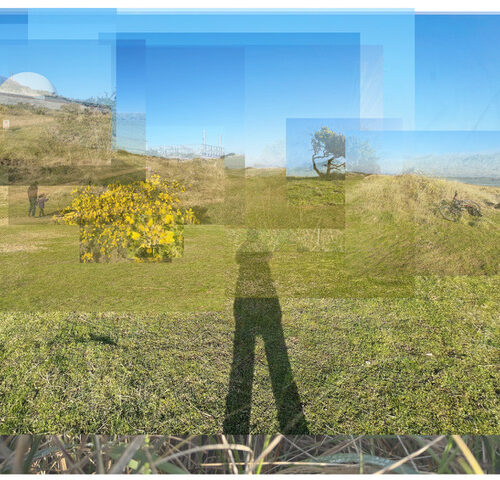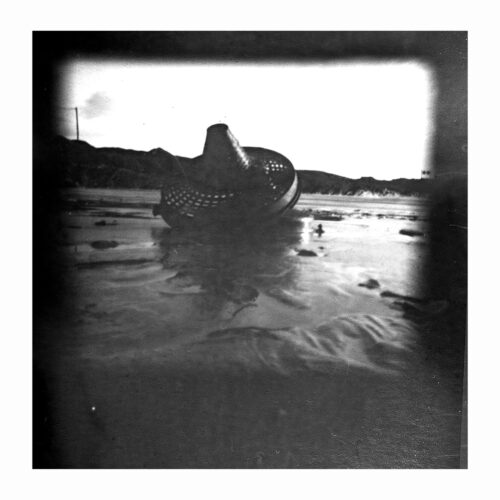
Photography and Madness
I have just reread Italo Calvino’s The Adventure of a Photographer and saw a few themes that might make food for thought. I am planning on doing a trio of blogs on the themes of Photography and…
1. Madness
2. The Present Moment
3. Violence
The short story can be found in Difficult Loves by Italo Calvino. The main character is a bachelor named Antonino who starts his relationship with the snapshot in a cynical and reluctant manner and ends up becoming prey to his own fears. It is a story of obsession, love, passion, violence and compulsion. Although photography has transformed a lot since 1955 the story could just as easily have been written yesterday, so familiar are the questions it raises.
Italo Calvino (b. Cuba, 1929. d. Italy, 1985) was an essayist, novelist and journalist. Much like Roland Barthes and Umberto Eco he is known as an intellectual and has insightful things to say about many aspects of life, photography being one of them.
Photography and Madness
Antonino began by criticising his friends who took candid snapshots of their lives. He considered the photographs meaningless, because they were singling out a moment of perceived beauty as being worthy of remembering while the rest of life was abandoned to the ‘unreliable shadow of memory’. He considered them false because his friends were acting for the camera, living that perfect moment for another time. He said that they either had to see every moment of life as worth photographing (leading to madness) or live every moment as if it were photographable (stupidity).
This post is about the first notion – the notion that believing every moment of life is worth photographing leads to madness.
Albert Einstein defined insanity as… “doing something over and over expecting different results.” In the story Antonino begins obsessively photographing in order to make his point, but the task is harder than it first appears and he gets drawn into photography’s game. He invites a model to pose for him and at the same time as he falls in love with her he becomes obsessed with capturing her essence. He falls into the same trap as his friends – only in a more extreme way – and can’t stop photographing her until he gets what he wants. Then she leaves him and he is left compulsively photographing her absence. Antonino believed, as he was intensely experiencing life, it was only validated when he captured it in a photograph, therefore he tried to photograph everything in a bid to validate his own, miserable, existence.

Cavity by Noemie Goudal from the series Haven her Body Was.
The line between the reality that is photographed because it seems beautiful to us and the reality that seems beautiful because it has been photographed is very narrow.
Antonino in The Adventure of a Photographer by Italo Calvino.
The Urban Dictionary describes madness as:
A mental state where one can not tell the difference between reality and their imagination.
Actually this is the power of photography for me. A medium which operates by recording actual events that can play with one’s mind by showing something that couldn’t possibly be real never ceases to fascinate me. The strength of photography for me is the subtle blend between reality and imagination. Does that make me mad? Does it make photography mad?
Antonino’s original concern was that to deem a moment worthy of being photographed is meaningless unless every moment is worthy of it. Are there any parts of your life that you don’t have recorded in a photograph? Do you wish they were? Or are there any events that you wish had not been photographed? I wonder if we remember things more accurately with or without a photograph.
We will come to Antonino’s second notion, that making every moment worth photographing would lead to stupidity, in Photography and the Present Moment.







Photographs and memory are a fascinating subject, this is wonderful to see how people have different conceptions of the relation existing between a memory and a picture. Personally, I can’t help but think that photography reduces/limits somehow our ability to recollect an event. It sometimes tend to limit our vision to the visual proofs existing in a picture, it prevents our memories to change and to grew older with us. A memory is never a rational, scientific and accurate recollection of our past, it is our relation to it, it does not have to be precise, it should be changing as we are.
Then, regarding madness and photography, does anyone have heard about lifelogging?
http://www.nbcnews.com/technology/tiny-lifelogging-camera-memoto-finally-launching-new-name-8C11329867
Recording a picture every 30 s of our life …
I think photographs tend to focus our memories on specific events and let other moments pass into the fog of the past. Now that I’m staggering into my sixties I feel that many events of my past would have been long forgotten without the photographs I’ve kept – indeed they are so important to me that I’ve got seven different back-up systems. So I’m very grateful to photography for keeping parts of my life alive in my mind.
Do you think that may be, if your memory had not been focused on these specific photographs you refer to, you might remember simply other memories who would have become as important, as precious?
Do we live the present, the moment, the same way if we are the photographer, or if we know the moment being photographed by someone else? Do we tend to use more consciously our other senses (the smell, the taste, the touch, etc…), live the moment more intensely, if we know that a moment is only elusive and will not be captured in a photograph?
These are questions bothering me a lot lately…
As a photographer I like to record my vision, my perception of a moment in a photograph – so that I could refer to it later, or if I disappear, my kids could see how I saw the moment, and may be remember me better through it. But I still think that there is something interesting in leaving the past un-fixed into a too accurate narrative.
‘A mental state where one can not tell the difference between reality and their imagination.’
In today’s Facebook world it seems to me that we may all be going mad. People seem to construct their own reality through images posted to their social media sites. These imaginary lives show people as they want to be seen not necessarily as they really are…. Question is do they believe their own fiction???
It seems to me that people have always sought out ways to remember events in their lives. Before photography people told and retold stories…over time I am sure these also became distanced from reality.
There are important parts of my life which I don’t have recorded….my first date with my wife, the deaths of my mother and father, my first day at school, and many more…. I remember them very well and feel no need for a photograph. I don’t think having a photograph would have made me more accurately record things. My memory of these events is not just pictorial. It is about all the senses…the smells, the sounds, touch…and its about how I felt at the time…
Madness could lead to obsession. Obsession could lead to madness. In my view the answer must be balance. My father was a photographer and I have grown up with photography. I have many fabulous photographs and film footage of him – both by him and by me – some snaps, some posed but all priceless. But my fondest memory is sitting with him giggling. I remember the touch of holding his hand and the joy of just laughing. There is no photograph of this moment. He died five years ago.
The comments about the links between photography and memory reminds me a recent article (http://www.bbc.co.uk/news/science-environment-24286258) about research that showed that people’s memories can be altered through doctored photographs. Personally I find I do tend to remember life events through photographs (but my memory is terrible). I’m reasonably confident that I’ve never been in a hot air balloon…
On to the question of madness: emotional intelligent imaginative beings that we are, it is incredibly difficult for us humans to see the world *exactly* as it is. I suppose this makes us all a little bit mad 🙂 I suppose what I like most about photography is encapsulated in this same madness: what is recorded by the camera is exactly the light that falls on the sensor/film, nothing more. What really makes a photograph in my view is the imagination of the photographer(viewer), who sees something more in the scene(frame) other than the physical objects(2d representations of physical objects) in it.
I have very few photographs of my past which means that I have literally not existed in photographs for many years… now that is sad. I don’t think of photographs as a means of replacing memory but to compliment my memories but I also think each individual holds a different relationship with photographs-y. Because of the lack photographic record in my life I feel the ‘need’ to document everything around me as the records are for me, my family more than for any other reason. Interestingly, when I recollect an event the people in it are always as they were at the time – they don’t change.
If you want to know how this article works read Keith Greenough’s comment, it is Brilliant.
“The line between the reality that is photographed because it seems beautiful to us and the reality that seems beautiful because it has been photographed is very narrow.”
Could they be the same thing but at different times? i.e. pre the existence of the photograph you have the beauty of the reality because you are in the reality. After the photograph has been taken it is a moment that ‘was’ a reality in the past. Both are beautiful to us in a different way. Photographs I have taken of past events remind me of that situation or that time in my life but they don’t necessarily remind me of how I was feeling or what I was thinking at exactly the moment the photo was taken whereas my memories (photos in my mind) are a bit more 3 dimensional but possibly not as visually accurate. So we use a combination of methods memory, photos, documenting, story telling, research etc (all in different proportions depending on who we are) to record our past in a more meaningful way to us. A fascinating debate
There has been a lot of talk lately that this new fangled invention called photography has rendered memory to a limp vestige of what it once was; and so we all become more and more reliant on the photograph to provide us with the memory. That ‘memory’ then tends to become mediated through time to be factual; it is what it was, because ‘I have the evidence in my hand to prove it’. So, when a new memory comes into view, as happened to me recently, which tends to contradict all the other evidential instances, then I agree, questions of insanity may surface. However I do think though that photography – or perhaps the photograph – is an unreliable witness; the single frame, the singular perspective, is a construct of the witting photographer, or of the unwitting shutter finger, either of which can and does provide challenges to what we thought we knew.
“People seem to construct their own reality through images posted to their social media sites.”
My feeling is it was ever thus. In the old days we used to call our “social media sites” the pub, and people used to brag imaginatively about when they were going to get their first sports car, the hot date they were going on, the number of press-ups they could do. I’m still not sure I buy the idea that social media has changed anything except ease and frequency.
I agree wholeheartedly that memory is so much more than images. I still feel queasy at the smell of Southern Comfort (21st Birthday) I can still hear the one and only nightingale I’ve ever seen and I can still taste the first chilli I ate (thinking it was a small green pepper) – and I have photos of none of these.
It seems to me that it is a conceit of photography that speculative writers on the subject feel it has a special place in memory making. Nature gave us 5 senses for a reason. Is there really any evidence that the memories of deaf or blind people are more or less real than those of sighted or hearing people?
A strange coincidence because I read the story last week whilst I was away for a few days and it’s a sad tale.
I have boxes of photographs, some of them quite old. I don’t have any memories of them because they died before I was born and it’s hard to imagine those people as having once been alive and animated. I think memory is strange – I remember something and then it’s as if I never forgot it in the first place. The photograph becomes like an index card or link on my computer that takes me to somewhere else. That one object can bring a whole host of memories for me because I can remember the place and time but also other events that happened around it.
I’m wondering now whether photographs act as my memory because I am a more visual person. It would be interesting to hear from some of our musicians or textile artists for example on the role that photographs might play for them.
I have to confess to one thing. I keep meaning to ask my children if they remember that particular occasion captured on a photograph. I haven’t though. Could it be that I’m concerned that their memory may be a negative one?